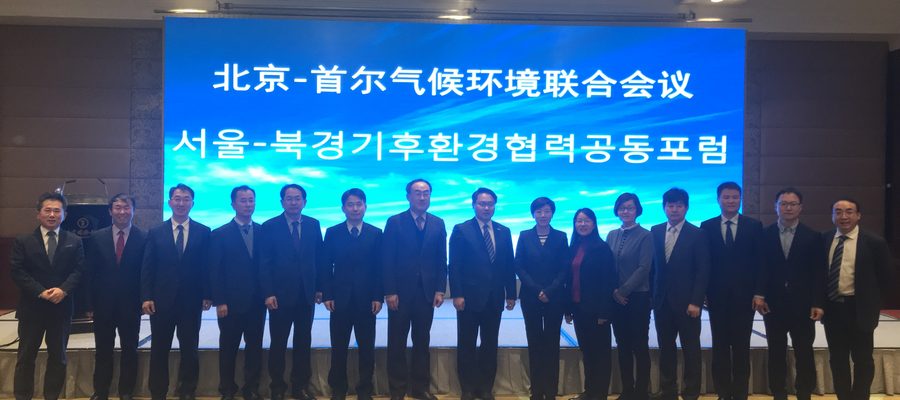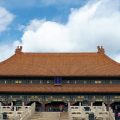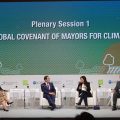Beijing-Seoul Climate and Environment Cooperation Forum

The Beijing-Seoul Forum on Climate and Environment Cooperation was held in Beijing on 26 November as part of the 25th Anniversary of the establishment of Seoul-Beijing relations. Co-organized the Beijing Ecology and Environment Bureau and the Seoul Climate and Environment Headquarter, the forum reaffirmed the strong commitments of the two capital cities to tackle climate change and environmental problems.
Seoul Mayor Park Won Soon emphasized in the welcome remark that “it is very important for all cities around the world to make joint efforts to tackle climate change.” He further said “Beijing and Seoul are breathing the same air. I expect that the joint research on pollution reduction technologies will create a synergy effect.”
Beijing vice Mayor Yang Bin shared that while Beijing is still faced with challenges in improving its air quality, the city has made significant achievements through the Beijing Clean Air Action Plan and air pollution control actions in the Beijing-Tianjin-Hebei region. He welcomed the productive Beijing-Seoul environmental cooperation under the framework of the Joint Committee, hoping “the two cities could further enhance the cooperation, which could contribute to air quality control and climate issues.”
Representatives from the Seoul Health and Environment Research Institute, the Beijing Environment Protection Science Research Institute, and the Beijing Environment Protection Monitoring Center signed the agreement to launch ‘the joint research team to reduce PM2.5’.
The two cities also shared their policies and programs on greenhouse gas reductions, air quality improvement, solar power capacity increase, and cutting down on the use of disposable plastics.
Beijing presented its air quality monitoring, main conclusions of PM2.5 source, VOCs control measures, and policies, and shared its achievements and next steps following the adoption of the “2018-2020 Blue sky Action Plan”. On this occasion, Beijing also shared the outcome of the preliminary research on the co-benefits of air quality and climate mitigation and adaptation. A business representative introduced the development of electronic vehicles and its future prospective regarding technology and policies.
Seoul presented two ambitious projects namely ‘Solar City Seoul 2022’ and ‘Plastic Free Seoul’. To reduce GHG emissions and improve air quality, the city plans to increase its solar power capacity to 1 GW by 2022, by installing solar panels in 1 million houses and creating solar energy landmarks and special towns. After the plastic waste crisis occurred in April due to China’s ban on imports of plastic waste, Seoul launched a new initiative on plastic waste with an ambitious target of reducing the use of plastics by 50% and recycling disposable plastics by 70% until 2022.
Shu Zhu, Regional Director of ICLEI East Asia Secretariat and Chief Representative of the ICLEI Beijing Representation Office proposed recommendations on deepening environmental cooperation between the two Capital cities. Since 2016, both Beijing and Seoul have been active participants of the East Asia Clean Air Cities (EACAC) program – a regional cooperation platform for air quality improvement managed by the ICLEI East Asia Secretariat. ICLEI East Asia will continue to support the two cities in consolidating joint efforts to improve air quality and tackle climate change, thereby contributing to global sustainability.




